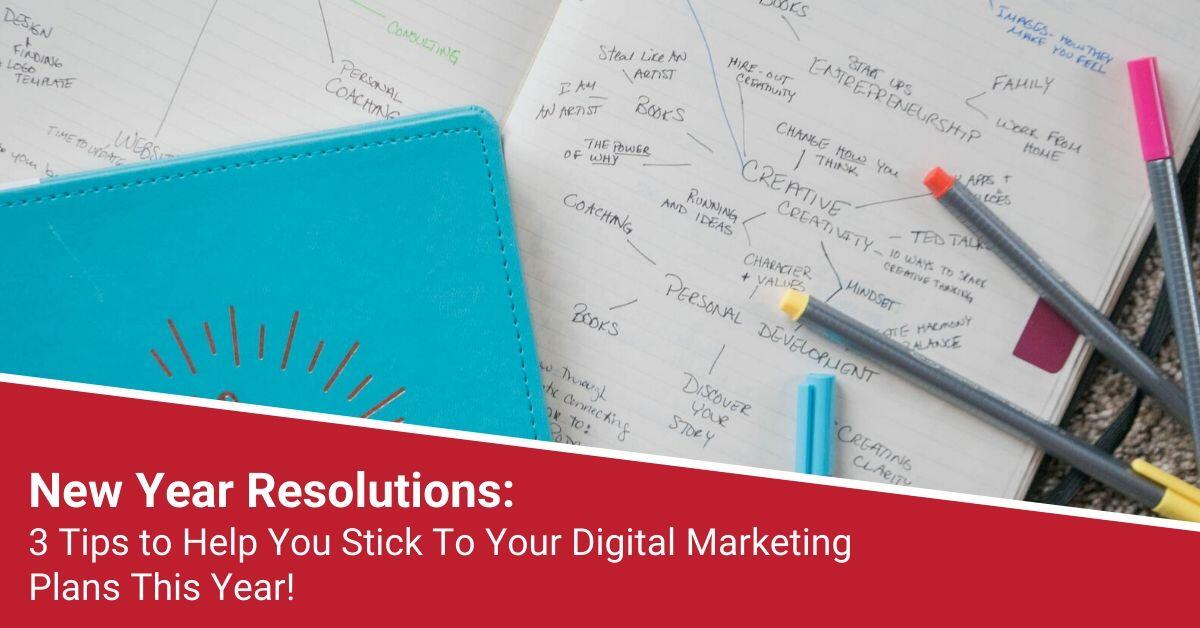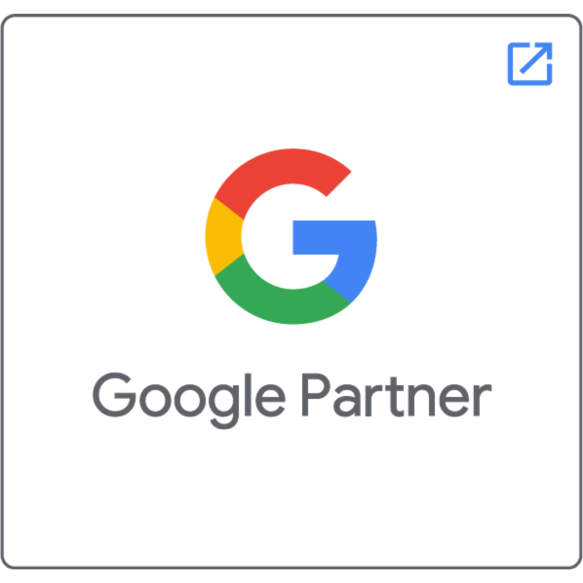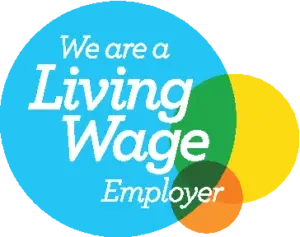New year, new decade … and no doubt quite a number of new year resolutions being discussed and planned for many of us as well. Great stuff. Change can be a good thing! Well done you!
Planning your resolution is one thing but sticking to it is quite another. Some reports online suggest that by mid February, around 80% of us will have dropped off our resolutions! Not so great!
Digital Resolutions and Plans for the next year
Plans for digital marketing improvement often follow the same pattern as a new years resolution. Great in principle, but gradually losing momentum and sometimes being sidelined completely. The plan of “spending more time on digital from January onwards” slowly becoming “I just don’t have time for that” by the end of Q1.
Whether it’s improving your use of social media, growing traffic to your website, improving conversion rates or increasing your own knowledge of digital marketing techniques and principles, what can you do to ensure you stick to your digital marketing plans and resolutions?
We love an offline analogy here at Aillum HQ, so to make it easier, we’re going to use some tried and tested techniques that help you stick to your personal resolutions, from weight loss to travel plans, to tackle your digital resolutions!
Tip 1: Targets and Goals
The Offline Example:
Many weight loss classes include a weekly or monthly weigh-in. You might have a longer term goal, but the weekly / monthly weigh-in lets you regularly evaluate progress. More importantly, this regular evaluation of targets lets you reflect on where it might have gone wrong, which in turn lets you make adjustments for the week or month ahead.
On seeing poor results in your weigh-in, you’re likely to change something and try again the following week or month. Ultimately, the cycle of target setting and evaluation helps you on your journey.
The Online Tip:
“Being better at digital” is pretty vague as a target. Be more specific about what you’re wanting to improve online. Be as ambitious or as sensible as you like: Gain 30 new followers on Instagram, reduce homepage Bounce Rate by 2%, improve the open rates of monthly marketing emails.
Write them down and work towards them. You might not achieve them each month, but it will be far easier to evaluate why not, allowing you to make specific changes for the following month.
Tip 2: Sensible Time Allocation
The Offline Example:
Getting fit. For some it’s fun. For many (most?) it’s often a bit of a chore. We tell ourselves things like “I’ll get to the gym later, once I’m finished work” and “I’ll definitely go for a walk tomorrow, I just don’t have time right now”. Both are common in the “I’ll get to it” strategy!
Many of us will know from experience that, unless you very specifically schedule in time for activities, there is a high chance that something else more important will stop it from happening … catching up with Netflix? Going for a coffee? Sitting doing nothing?
Pre planning activities for sensible days and times is a key part to the activity, and therefore fitness routine, being a success.
The Online Tip:
“I’ll set aside Friday afternoons to tackle my digital marketing.” and “I’ll deal with it when my desk is clear” are not sensible time allocations! Some may not want to admit it, but by a Friday afternoon there’s a good chance you’re in winding down mode after a hard week. And is your work desk ever really clear?
If you want to be consistent with digital, be sensible with your time planning. Don’t squeeze it in. Allocate actual time to it, and commit to it. Why not instead block out a Tuesday morning 9am – 10am, or a Wed 1pm – 3pm, or even 30 minutes every day between 11.30 and 12? Try it for 1 week and see how you get on. If you don’t schedule it in, you’re less likely to do it.
Tip 3: Break it down into manageable tasks
The Offline Example:
A common resolution is to do something you’ve wanted to do for a while … travel to a different country, learn to swim, climb a hill, learn a language, learn a skill etc.
All are admirable, but you can’t simply “do” any of them. There’s planning involved in most of them. What language will you learn? Why? Should you attend a class or source a tutor? Which is best? Should you learn at nights or at weekends? How much will it cost?
While you might not realise it, you’re breaking down a bigger project into smaller, easier to manage tasks. You’re writing down specific tasks and ticking them off one by one, ultimately reaching the goal of learning a new language.
The Online Tip:
Digital can be overwhelming. We commonly hear clients and training attendees describe having “loads” to do to improve their digital performance.
Take a step back, and break “loads” down into smaller more manageable tasks. Then start ticking them off one by one. You’ll start seeing progress, and you’ll be motivated to continue.
As an example, “We want to be much better at Facebook this year” is a phrase we’ve heard recently. A decent aim, but how do you get started at being better? A broken down version of that statement might include tasks such as:
- Improve the profile picture, ensuring it’s clear in the multiple sizes in which it’s displayed.
- Flesh out all available sections within the “About” tab. Not just the easy bits, but all relevant parts.
- Ensure proper use of the Call To Action button on the page header. Has it been changed to something relevant, or still the default?
- Begin liking other relevant pages as your page.
- Ensure relevant tabs are being used and are in a sensible order on the page.
All reasonably simple in their own right, but a lot more actionable than “being better”.
Improve your chances of sticking to your digital marketing plans by setting targets & goals, allocating sensible time and breaking down projects!





